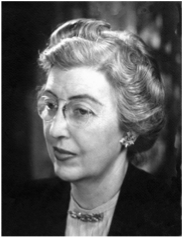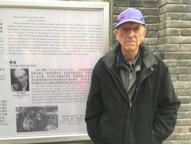Chapter V: Wooster, Ohio
Honesty is the first chapter in the book of wisdom.
- Thomas Jefferson
1940-1941
Wooster, Ohio
Almost my entire family – my father and his siblings and all my older brothers and sisters with the exception of John – had attended Wooster College, a small, first-rate, originally Presbyterian institution of higher learning. So it was natural for Mother to locate there even though she was a graduate of Albion College, a Methodist institution in Michigan. We found a pleasant three-story apartment on Beall Avenue, which most importantly, as it turned out, had a full basement.

Mother and I, Wooster
Chemistry in the Basement
David Brown was interested in chemistry and physics, and had quite a laboratory in his basement with all kinds of chemicals, a veritable latter day Thomas Edison. I was agog when he it showed to me. This was going to change my life.
David had somehow established a friendship with the man in charge of the stockroom in the chemistry department of the College of Wooster who was kindly towards him – and subsequently to me – and who would give us small quantities of almost any chemical we wanted – free of charge. One time he even gave me, with appropriate cautions, some white phosphorus kept under water in a glass bottle. This is a highly toxic element, which burns the skin and spontaneously ignites when exposed to air. It made for some beautiful magic tricks though! Imagine anyone giving something like that to a 13-year-old boy today!

Me in 7th Grade
Of course full reports were made to our mother, who much to my relief was quite philosophical about it, especially since the pants were brand new. Once again I escaped punishment. Incidentally Mother was fully supportive of my having a laboratory in the basement and my learning about chemistry. I don’t believe she fully realized how dangerous some of the things that I was doing were. Certainly I did not. I made thermite powder which, when ignited, burned with an extremely hot flame and left as a product molten iron. I did a number of experiments with hydrogen sulfide gas sans any proper ventilation. One time this resulted in severe headache. I had no idea that this gas can kill (as it did some years later a janitor in the chemistry department of Dartmouth College). I made little bombs by stuffing gunpowder into small bottles, igniting them with house current melting a fine copper ignition wire. And I had a peashooter pistol into which I put strike-anywhere matches to produce flaming missiles, which were directed to a pile of newspapers in a corner of the basement.
I also learned about a fascinating chemical, nitrogen triiodide, that was so sensitive that it would explode at the delicate touch of a feather. It was very easy to make: just soaking iodine crystals in ammonia water for several days, and then drying them. You wanted to place them in their final resting position while still wet because there was no hope of moving them once they were dry.
The fact that our apartment building still stands is, in a way, a tribute to my mother’s faith in me plus a huge amount of dumb luck.

Young Chemist, Age 12
David Brown and I always looked forward to the regular visits of our tutor. This was a wonderful way to learn about the chemistry of many of the elements of the periodic table. Of course when I got to college, I went through the entire scheme of analysis again, but with much greater understanding of the theoretical aspects of why we did what we had done.
War with Japan
The war was progressing with the Japanese making huge territorial incursions into China and moving on into Southeast Asia. The United States was selling Japan scrap iron and oil right up until the day of Pearl Harbor. Mother went on a speaking tour, and like Coleridge’s Ancient Mariner, she could mesmerize an audience:
“He holds him with his glittering eye--
The Wedding-Guest stood still,
And listens like a three years child:
The Mariner hath his will.”

Geraldine Fitch, Author, Lecturer
major and teacher were now paying off with interest.
Dad in the meantime was in China as Field Director of the Chinese Industrial Cooperatives, a countrywide system of cottage industries in support of the resistance to the Japanese invasion. He was also in charge of YMCA rehabilitation services to Chinese soldiers injured in the war. So we saw precious little of him, although he did come ‘home’ infrequently.

There is now a museum of that holocaust in Nanjing. They hold an annual day of remembrance every December 13th. Recently I was invited to be their guest and to give a brief talk about my father before a distinguished group of Chinese and international attendees. In this picture I am standing next to my father’s memorial in the Museum.
And so John and I were sent off to boarding school nestled in the north woods of northern New York state, while Mother worked in New York City between lecture tours, and Dad was in China.
♣
